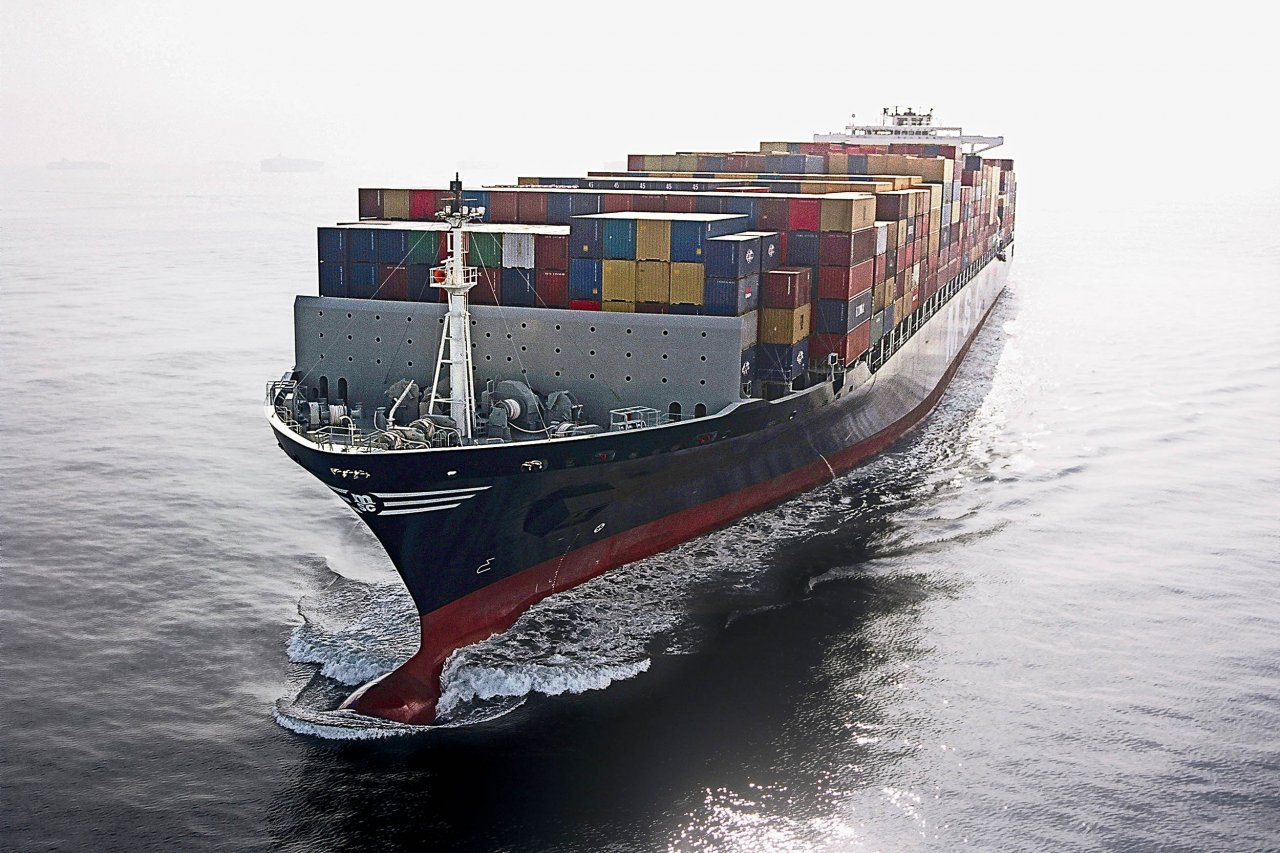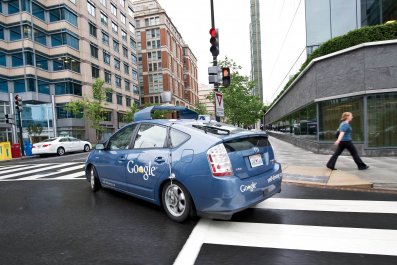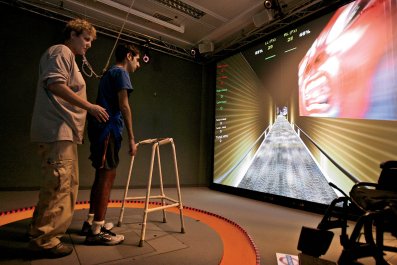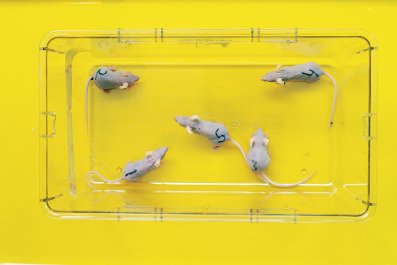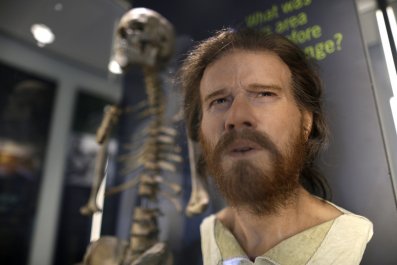"The time is now ripe for a fundamental change in shipping," says Oskar Levander. From his base at Alesund in Norway, the vice president for the marine technical wing of British manufacturer Rolls-Royce is talking about the future of the €275bn global shipping industry. And that future is: ghost ships.
Rolls-Royce has a vision of how one day we will be dependent on fully unmanned ships for the transport of goods across the world's oceans. "Training in ship handling has, to a large extent, already moved ashore into simulators," says Levander. "Unmanned and remote controlled ships are a logical extension of this.
"There is a growing social acceptance for remote controlled or autonomous systems, including cars and trains. The move to unmanned ships will be gradual, probably coming first to waters within the jurisdiction of an individual state. Early examples of unmanned ships are likely to be bulk carriers or cargo vessels transporting non--hazardous goods."
Esa Jokioinen, head of the Blue Ocean development team at Rolls-Royce, explains how a remote navigation system could work for ships of such scale that they weigh up to 600,000 tonnes: "The captain would sit at a shore location, receiving real time data from sensors over a secure communications link. With multiple cameras around the vessel, a full picture is available, including a bird's-eye view of the vessel in relation to its surroundings.
"Rolls-Royce has developed advanced 360 degree bridge simulator systems and these are in everyday use for training," says Jokioinen. "These use complex mathematical models to provide the virtual world of a ship at sea and its response to control inputs. From there to using real inputs to generate the 360 view and control an actual vessel is a small step." Because human control of the ship is being moved from the ship's bridge to a remote cockpit on shore, the likelihood of collision remains in the hands of the captain, rather than automated machinery.
This prospect of unmanned ghost-ships navigating the world's sea lanes remotely may sound like science fiction but it is an idea that the shipping industry has been seriously discussing for more than ten years. The industry estimates that 44% of freighter costs are associated with -supporting a crew. Rising fuel costs in recent years have meant slower and less fuel-consuming voyages are more economical, but long journeys are also less attractive, so finding willing crew can be difficult. Rolls-Royce is planning for improvements in efficiency of up to 20% thanks to unmanned systems and a corresponding reduction in emissions.
In the past two years the European Union has become so convinced of the inevitability of -universally unmanned cargo freighters that it has invested €3.5m to establish project Munin (Maritime Unmanned Navigation through Intelligence in Networks).
Munin project poordinator Ornulf Jan Rodseth explains why the EU is investing in a future where shipping is unmanned. "This automated technology will transform the shipping industry," he says. "The main objective is to see how far we can automate all functions of the ship. In the short term we are looking to reduce crew numbers to perhaps one, with much of the navigation burden being conducted on-shore. Ultimately, I can see a time when maritime disasters are totally eliminated by automated technology."
The International Chamber of Shipping (ICS) represents 80% of the estimated 100,000 ships that travel the Earth's oceans. ICS director of external relations, Simon Bennett, believes we will have a long wait before unmanned ships pass the concept stage. "We're looking at around 20 to 30 years before we can realistically expect ships to be sailing without crew. There is the hurdle of current international legislation, which strictly regulates minimum crew numbers. Politically, reducing crew numbers is still controversial and there can be a tendency for humans to over rely on technology. If technology fails then we need to rely on our age-old seafaring skills."
In some quarters there is open opposition to the idea of automating the shipping industry, on which 1.2 million jobs depend worldwide. Acting general secretary Mick Cash of the British Rail, Maritime and Transport (RMT) Union says: "RMT take very seriously the threat to maritime safety, jobs and industry standards that these drone ships clearly represent. It is completely unacceptable for the industry to actively contemplate drone ships and flies in the face of the International Maritime Organisation's concept of sustainable maritime transport."
Jobs losses are not the only danger presented by crewless ghost ships. According to the International Maritime Bureau Piracy Reporting Centre, by May 2014 there were already 72 reported piracy incidents globally. Antoine Martin, principal consultant of Unmanned Vehicle Systems Consulting LLC, points out that unmanned ships could be perceived as being vulnerable by pirates: "There would be no human hostage situation from piracy," says Martin. "However pirates might see the ships as easy targets. Having no crew or guard to watch for and evade pirates would make piracy easier. Robbers attack houses while people are on vacation or if a house seems unoccupied. Pirates would in all likelihood attack unmanned ships first."
Bennett points out in the medium-term a continuation of the existing trends towards remote control seems most likely: "In the next ten years through a system called e-navigation there will be increasing interaction between the ship and navigation systems on shore. At present, we have vessel traffic management systems, where close to shore the local coastguard tells the crew what it should be doing. It's foreseeable that this system could be automated in the near future.
"This development could be controversial for those who believe ultimate control and accountability for a ship should remain with the captain and crew. However, it's possible to see how e-navigation will be useful in places of high traffic such as the English Channel and the Strait of Malacca."



